Compliment vs. Complement
What is the difference?
Compliment and complement are two very similar words in the English language. Sometimes even native speakers mix them up. How do you know when to use each one?
The two words are pronounced in the exact same way, and there is only a small difference in their spellings. Despite these similarities, the meanings of the two words are not related! One is used to offer praise, and the other means that something goes well with something else. Understanding the difference between the two words is important, because if you confuse them it's considered quite a basic spelling mistake.
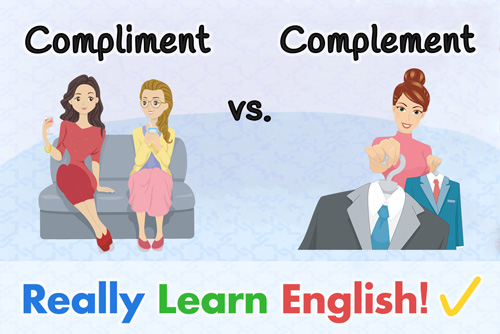
Click Here for Step-by-Step Rules, Stories and Exercises to Practice All English Tenses
Compliment
The word compliment is both a noun and a verb. As a noun, compliment means praise, an expression of admiration, or more simply, something nice you say to someone.
As a verb, compliment has the same meaning. To compliment means to praise, to express admiration, or to say something nice to someone. Both the noun and verb forms of the word are equally common.
It is typical to make compliments about appearance, clothing, effort, intelligence and humor.
Common compliments are "You look great!" "You did a wonderful job!" and "That was so funny!" Sentences like "I like your T-shirt," "You are a good cook" and "What a good drawing!" are also compliments.
The adjective form of compliment is complimentary (expressing praise, admiration, etc). If you give someone a compliment, you are being complimentary.
Synonyms for complimentary are admiring and approving. Bear in mind that complimentary can also mean free of charge, but this definition is not related to the meaning of compliment. The opposite of complimentary is not complimentary.
Collocations
Common collocations with compliment are the following:
- To give a compliment: To say something nice to someone.
- To pay a compliment: To say something nice to someone. (Formal)
- To get a compliment: When someone says something nice to you.
- To accept a compliment: To thank someone for a compliment.
- To return a compliment: To compliment someone after they have complimented you.
- A great compliment: A very nice compliment.
- A wonderful compliment: An extremely nice compliment.
Examples:
- I complimented Henry on the chocolate cake he served at the party. It was delicious!
(I told Henry that the chocolate cake he served at the party was very good.)

- When my boss compliments my work, I always feel very proud.
(When my boss praises my work, I always feel very proud.)

- Juliet paid me a very nice compliment yesterday.
(Juliet said something very nice to me yesterday.)

- You will probably get a lot compliments about your speech. It was really good!
(A lot of people will probably say that they liked your speech, because it was very good.)

- Sandra is often very complimentary. Last week she told me she liked my shoes, and yesterday she said I was wearing a pretty dress.
(Sandra always says nice things to people. Last week she told me she liked my shoes, and yesterday she said she liked my dress.)

- Will said I played well in the football game, but I forgot to return the compliment.
(Will said I played well in the football game, but I forgot to say the same to him.)
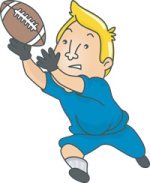
Complement
The word complement is also both a noun and a verb, but unlike compliment, complement is more commonly used as a verb.
To complement means to go well with or to be the perfect addition to. The word complement is typically used to speak about clothing and food. If a skirt and t-shirt look very nice together, they complement each other. When two parts of a meal combine to form a taste that is especially delicious, it is said that the two foods complement one another.
You can also use complement to talk about people. If the personalities of two people are a good match, you can say that one person complements the other.
Usually, complement is used to talk about the relationship between two things. If you need to talk about the relationship between more than two things, you can use the verbs to go well with or to go well together. The opposite of to complement is to contrast.
As a noun, complement conserves the same meaning as the verb. A complement is something that goes well with something else. The adjective form of complement is complementary, which means compatible or harmonious. The opposite of complimentary is not complementary.
Collocations
Common collocations with complement are:
- To complement something well: To go well with something.
- To complement something perfectly: To be the perfect match for something.
- A perfect complement for something: Something that goes perfectly with something else.
- Mutually complementary: When two things go well with one another.
Examples:
- That tie George is wearing really complements his suit.
(George's tie goes really well with his suit.)

- The steamed vegetables complement the tuna steak perfectly.
(The vegetables and the tuna go really well with one another.)
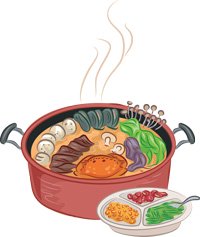
- Sophie likes to cook, and her brother likes to wash the dishes. They complement each other perfectly!
(Sophie and her brother are a good match, because she likes to cook and he likes to wash the dishes.)
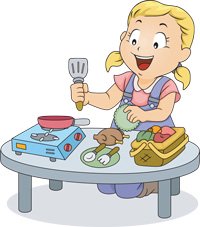
- Would red wine or white wine be a better complement for the meal?
(Would red wine or white wine go better with the meal?)

- Handbags are a good complement for most outfits.
(Handbags look nice with most outfits.)

- Peanut butter and jelly are two very complementary foods.
(Peanut butter and jelly go very well together.)
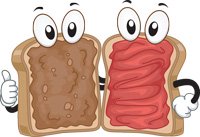
Tips
To remember the difference between compliment and complement, remember that the word with two e's means "to go together" or "to accompany." The two e's complement each other!
A Story to Practice
Compliment vs. Complement
Hannah and her best friend Jane complement each other perfectly. Hannah loves to tell jokes and Jane loves to laugh, so their personalities are very complementary. Meanwhile, Hannah likes to try different types of food and Jane likes to cook, so in this respect their characters also complement each other.
When Hannah tells a funny joke, Jane always compliments her. Likewise, when Jane prepares a delicious meal, Hannah compliments her too. Both girls' compliments are always very complimentary!
Once, Jane told Hannah that having her as a friend was almost like having a sister. Hannah said this was this nicest compliment she has ever received. Hannah returned the compliment, and told Jane that she complemented her perfectly.
The two girls are having a dinner tomorrow to celebrate their friendship. They are going to serve homemade pizza, which will be complemented by strawberry ice cream. They hope that their friends compliment the meal!

Quiz
Answer the following 10 questions and then check your answers. Each question is worth 10 points.
Part 1:
- Which of the following is a correct definition of compliment?
- To be a match for
- To praise
- To go well with
- To contrast
- Which of the following is a correct definition of complement?
- To admire
- To say something nice about
- To be a good match for
- To approve of
- Which sentence is written correctly?
- Chocolate is a good compliment for strawberries.
- Your haircut is very complimentary.
- Sarah's personality really compliments her husband's.
- Hannah paid me a very nice compliment yesterday.
- Which of the following is written incorrectly?
- Thank you for paying me such a nice complement.
- The shrimp appetizer was a great complement for the main course.
- My cousins' personalities are very complementary.
- Those shoes complement your outfit nicely.
Part 2:
- What is the nicest ____________ you've ever received?
- complement
- compliment
- complementary
- complimentary
- The pasta salad ____________ the meal very well.
- complemented
- complimented
- complements for
- pays a compliment to
- I often feel embarrassed when people ____________.
- are complementary
- are compliments
- give me complements
- pay me compliments
- The personalities of Rachel's cat and dog really ____________.
- are complimentary
- give complements
- complement each other
- compliment one another
- I ____________ my mom on her earrings, which really ____________ her outfit.
- complimented; complimented
- complemented; complemented
- complemented; complimented
- complimented; complemented
- The new office furniture ____________ the décor. Everyone has been ____________ it!
- compliments; complementing
- complements; complimenting
- compliments; complimenting
- complements; complementing
Answer Key
Part 1: 1. B | 2. C | 3. D | 4. A
Part 2: 1. B | 2. A | 3. D | 4. C | 5. D | 6. BGet Updates, Special Offers, and English Resources
Download your FREE GIFT (the first two chapters of
English Short Stories Book and Workbook)
as soon as you join!

By submitting your email, you consent to receiving updates and newsletters from us and to the sharing of your personal data with third parties for the purposes of sending you communications. We will not spam you. You can unsubscribe at any time. For more information, please see our privacy policy.





